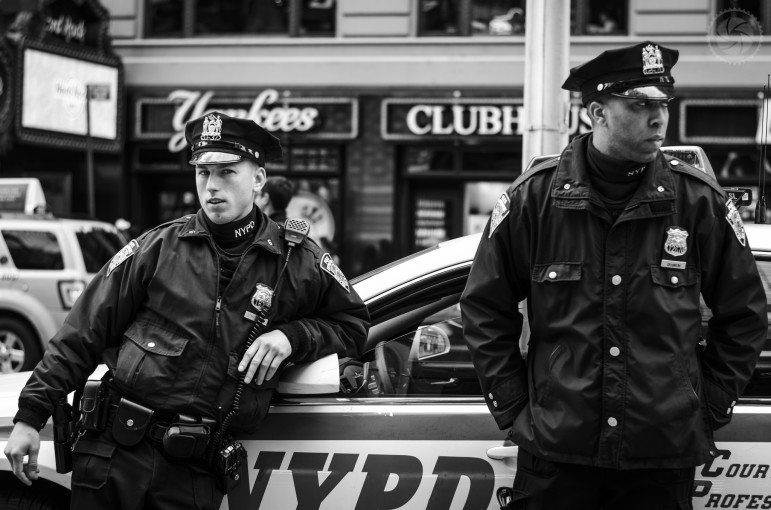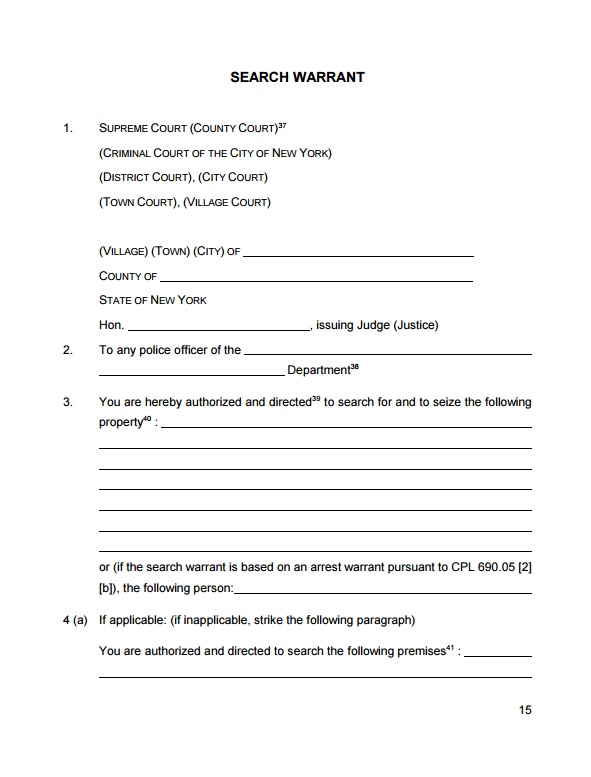
Bret Sayer
NYPD officers
A report due out today from the Civilian Complaint Review Board reportedly finds that NYPD officers sometimes break with proper procedure when they enter people’s homes. According to the New York Times:
The report, to be released on Tuesday, criticizes the department’s internal rule book for failing to detail that a warrant, or probable cause, is needed for searches and seizures in homes, and for providing no guidance on the kinds of emergencies that allow officers to enter homes without them.
In one case the newspaper mentioned, officers had an arrest warrant, but not a search warrant, when they entered an apartment and began what likely was an illegal search.
The problem for a person on the other side of a door the NYPD wants to open is that if you don’t know the difference between those and other documents, you might consent to a search that actually hasn’t been authorized.
A good guide to the ins and outs of search warrants in New York State is a state court system publication from 2005 called “The Complete Search Warrant, Annotated.” It reveals the subtle intricacies of case law surrounding warrants.
For instance, “A search warrant authorizing the search of defendant’s house justified a search of his car (trunk) which was parked at the premises” but “a search warrant that did not specifically authorize the search of an automobile could not be used to search a car that was driven into the driveway of the house specified in the warrant.”
The report also provides a typical search warrant template, which apparently looks like this:

NYSUCS
It’s worth noting that even during the Bloomberg administration, the NYPD was making some efforts to better educate officers on exactly what legal authority they had when entering private premises: A 2013 brief from he department’s Legal Bureau instructed cops that “an individual’s mere presence in a searched location does not establish probable cause to arrest.”








